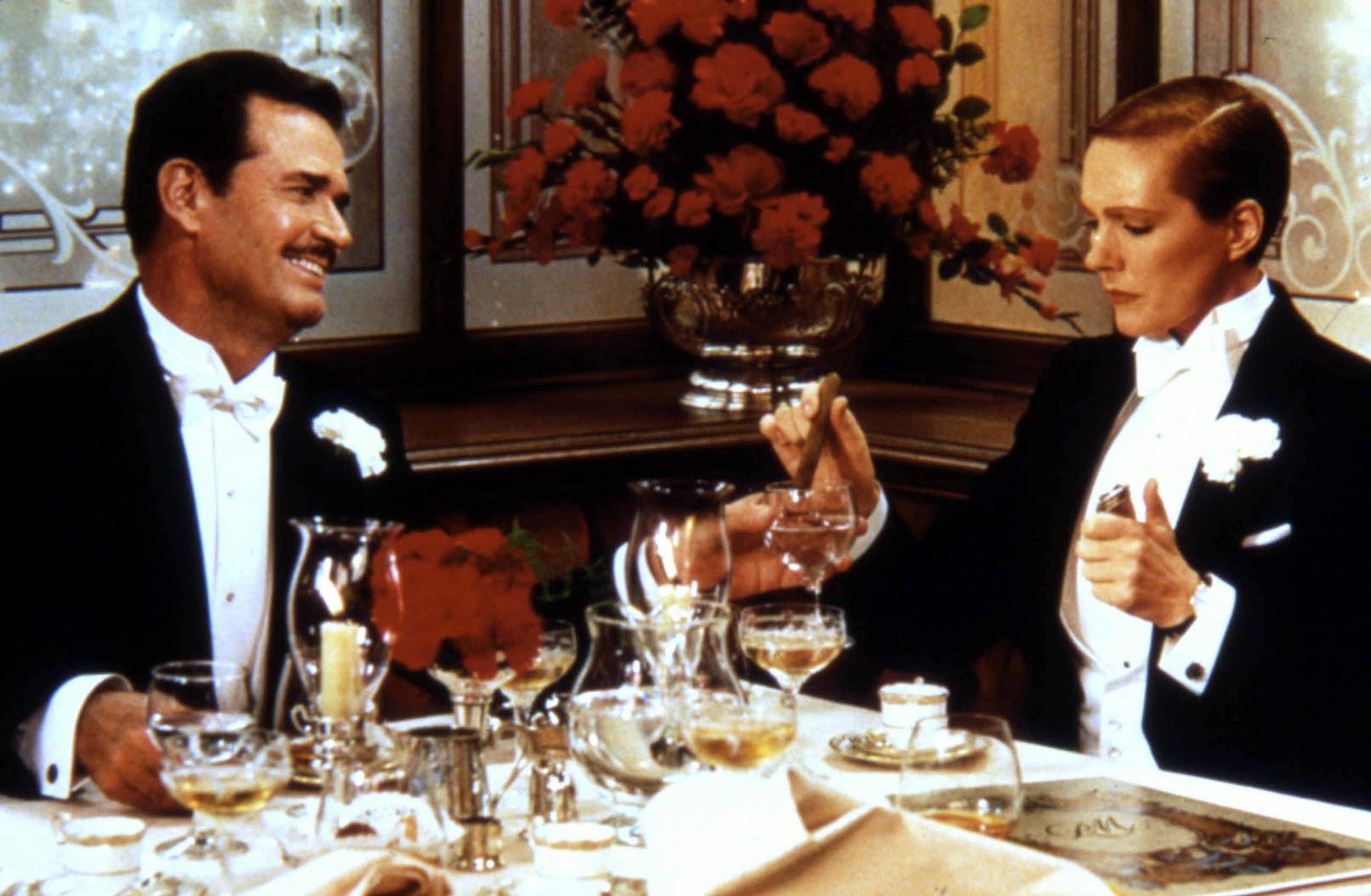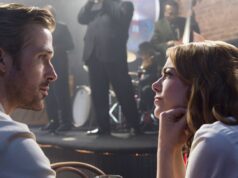Blake Edwards creates an audacious comedy/musical that defies conventions and finds a perfect balance between slapstick and sophisticated humor
Victor/Victoria (1982)
Written and directed by Blake Edwards, based on the 1933 script of Viktor und Viktoria, by Reinhold Schünzel. Starring Julie Andrews, James Garner, Robert Preston, Lesley Ann Warren, Alex Karras, John Rhys-Davies, Graham Stark, Peter Arne, Malcolm Jamieson, Sherloque Tanney, Michael Robbins, Maria Charles, Glen Murphy and Geoffrey Beevers.
It is quite safe to say that anyone who loves comedies and musicals will find plenty to enjoy in the deliciously flamboyant Victor/Victoria of 1982. Directed by Blake Edwards, the film is a great example of how to combine exceptional performances and an impeccable screenplay that relies on a first-rate dialogue. To make things more delightful, Edwards even manages to find a special balance between the physical humor that characterized his Pink Panther movies (he actually planned to star Peter Sellers in it, but Sellers passed away in 1980) and a more sophisticated, highbrow humor — with lines such as “Speaking of overworked jaws, why don’t you treat yours to a sabbatical and fetch me a wine list?” It’s just irresistible.
Adapted by Edwards from a very funny German film made in 1933 called Viktor und Viktoria (though quite different in many aspects and considerably superior), Victor/Victoria shifts the original setting from Berlin to the snowy winter of Paris in 1934 and follows Victoria Grant (Julie Andrews), an aspiring coloratura soprano struggling to find any job that will put food in her starving mouth and pay her overdue rent. In one of those chance encounters, she meets Toddy (Robert Preston), a flamboyant gay performer at Chez Lui who comes up with an odd plan for a successful show: to pass her off as a female impersonator; that is, to make her pretend to be a man pretending to be a woman. But that gets even more complicated when she falls in love with a nightclub owner from Chicago who turns out to be your stereotypical macho male.
With such an intriguing premise, Edwards creates several memorable moments — some of which were not even present in the original movie, like a cockroach scheme sequence that can be quite amusing with lines such as “Last week we had some Rosé, but we are using it in the salad.” Of so many great set pieces, I personally love a hysterical scene with two intruders in a hotel room (trying to get in and out) and a bizarre moment involving… an equilibrist. These physical gags are clearly reminiscent of the type of humor that made Edwards’ Pink Panther movies so funny, including a recurring high-pitched voice shattering a glass and a hilarious joke involving a broken stool — yet, on the other hand, I do find that lightning striking someone’s umbrella is perhaps a bit too slapstick (and unnecessary) for this film.
One of the pleasures of watching Victor/Victoria, however, is seeing how Edwards is willing to explore the possibilities of his premise. While the original film avoided any actual discussion about sexuality, Edwards is franker and doesn’t refrain from openly speaking about gender, discrimination and stereotypes. At one moment, for instance, Victoria says to King Marchand (James Garner), the man she fancies (and who is so preoccupied with stereotypes), that she is simply another kind of man — one that doesn’t have to prove it, to herself or anyone. That makes it fun to observe how a man like him cannot understand being into a guy or having erection problems with a woman in bed (oh, masculinity, this fragile little thing). And what can be more revealing than seeing a macho man getting into a fight just to feel “man” again?
It is true, like Edwards once admitted in an interview, that he “chickened out” by including the scene in which King Marchand discovers that Victoria is a woman. Granted, this moment is there in the original film, but it would have been a lot more audacious to let him fall in love with her without knowing the truth. This eliminates some of the impact of the line “I don’t care if you are a man,” but I’m still glad it is there. At least, Edwards compensates for that with a fabulous direction, using reflections on mirrors (like in the beginning) and making Victoria disappear from the screen right before we realize she fainted after eating someone else’s food with her starving eyes. Likewise, I can only admire the elegance of a scene transition (an aural match cut) created by someone blowing their nose and the sound of a horn.
But none of this would really matter if it weren’t for the film’s exceptional cast and music. Julie Andrews may not look that convincing as a man (much like Renate Müller in the original movie, who at least had the advantage of being shot in black and white), but she sells it with incredible conviction. James Garner, on the other hand, is perfect as the confused macho man, while Alex Karras offers a touching layer to the gay bodyguard Bernstein. And if Lesley Ann Warren makes us laugh out loud with a character clearly inspired by Marilyn Monroe (there is even a moment when her dress is lifted by the wind), Robert Preston seems to be having a hell lot of fun as Toddy, uttering priceless lines such as “Oh, God… there’s nothing more inconvenient than an old queen with a head cold” and stealing the show with a sensational final sequence.
Nominated for seven Academy Awards and winner of only one (for best music), Victor/Victoria is a modern classic that impresses with a handful of wonderful songs and great choreography (like in the delightful jazz number). In 1995, it was adapted into a Broadway musical. Those out there interested in watching an intelligent comedy for adults, don’t look any further. Here is a perfect example of audacity made in the 1980s.




